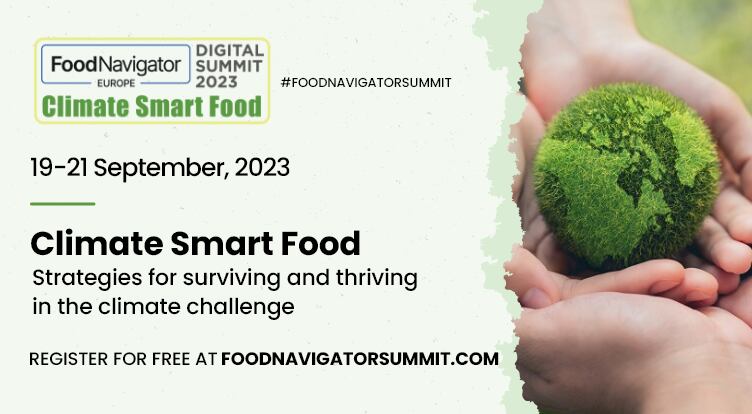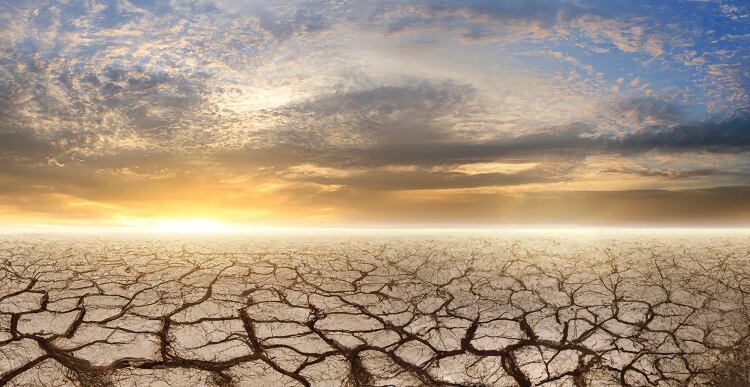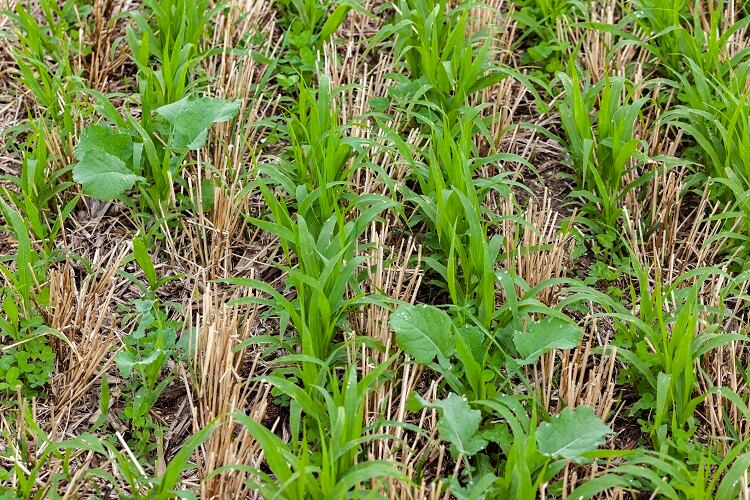Climate Smart Food 2023 is here. On Tuesday, Wednesday and Thursday this week, we’ll be bringing you a packed agenda and a stellar line-up of speakers to discuss the transition towards sustainable food sourcing, production, and consumption.
Speakers include Kaveh Zahedi, director of the Office of Climate Change, Biodiversity and Environment, FAO; Francesco Tramontin, VP, Group Public Policy Center, Ferrero; Romain Chayot, managing director, Standing Ovation, Theodora Ewer, Program Manager, Regen10, Food and Land Use Coalition, Hannah Cornick, head of sustainability and social impact, Danone UK & Ireland, Claire Baffert, senior water policy officer, WWF European Policy Office, Chris Shearlock, Europe Sustainability Director, Thai Union, and many more.
In Climate Smart Food’s third year, we’re putting extra focus on two areas currently impacting food production and food security: supply chain disruptions and water scarcity.
On Day 1 at 2:40 CEST, FoodNavigator deputy editor Oliver Morrison will moderate a panel discussion asking why supply chain disruptions occur, and how they can best be prevented or managed.
Manging Disrupted Supply Chains amid Droughts Floods, and War
Supply chain disruptions have become increasingly commonplace amid recent natural disasters and global conflicts, threating food production and global insecurity. How can these challenges be overcome in the short-term, and networks reimagined for the long-term, with resilience in mind?
Speakers include:
- Annemarie Groot, team leader – Team Climate Resilience, Wageningen University & Research
- Geer van Aelst, head of sustainability, Südzucker Sugar Division, Südzucker
- Neil Walker, senior strategist, Forum of the Future
- Chris Davies, founder & CEO, Harvest London
On Day 2 at 2:40 CEST. FoodNavigator editor Flora Southey will moderate a panel discussion on the threat of water insecurity on food production.
Water Scarcity & Food Production
It has been suggested that the next world war will be fought over fresh water. Food production is a massive guzzler, with an estimated 240 million litres required per second to produce enough food for global populations. We ask where water inefficiencies are most prevalent and analyse strategies promising to reduce reliance on this valuable natural resource.
Speakers include:
- Claire Baffert, senior water policy officer, WWF European Policy Office
- Brian Nash, vice president of corporate sustainability, Ingredion
- Oleksandr Mialyk, outreach coordinator, Water Footprint Network
- Carmen Galindo Rodriguez, key account manager, EIT Food
For each day of Climate Smart Food, sessions will run from 14:00 CEST to 17:00 CEST and will include interactive presentations, panel discussions, audience Q&As, fireside chats and start-up pitches. A full list of speakers are available here and the programme, here.
Register for this free-to-attend event here.
19 September: Climate Smart Sourcing
Ingredients are a major contributor to FMCGs’ carbon footprints, making sourcing practices crucial to meeting carbon reduction deadlines. But cultivation is not the only consideration: global supply chains are increasingly plagued by disruption and have long been linked to human rights violations. How can sustainability be embedded into global supply chains?
On Day 1 of Climate Smart Food, we’ll be asking how best to mitigate against supply chain disruptions linked to droughts, floods or war; what sustainability legislation means for food majors; and whether regenerative agriculture can truly save the day.
20 September: Climate Smart Production
Feeding growing populations within planetary boundaries means producing more, with less. How can food and beverage makers increase output with fewer natural resources? From making the switch to ‘green’ energy to implementing water saving strategies and rethinking packaging design, we analyse the initiatives decarbonising production.
On Day 2 of Climate Smart Food, we’ll be asking how food majors can decarbonise their direct emissions; where water inefficiencies are most prevalent and how reliance can be reduced; what the future holds for plastic-free packaging; and whether we should increase our focus on the blue economy for sustainable nutrition.
21 September: Climate Smart Consumption
Shoppers often say they want ‘greener’ food and drink, but don’t always act with sustainability front-of-mind. Addressing barriers to climate smart consumption will be key to achieving food system transformation. Consumer demand is also a crucial piece of the food tech puzzle, with pioneers banking on us innovating our way out of the climate crisis. Are Europeans hungry for lab-grown food?
On Day 3 of Climate Smart Food, we’ll be asking what impact brands have on discouraging food waste in the home; how sustainability credentials can best stand out on the shelf; whether European consumers are ready for cultivated meat and precision fermentation dairy; and what the future holds for alternative protein.
Join the conversation live between 19-21 September by registering for free here.




